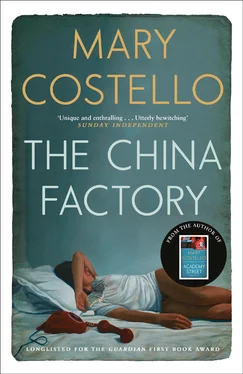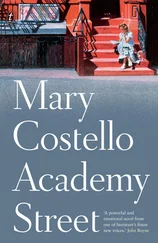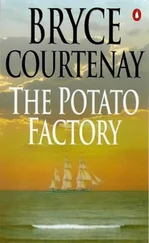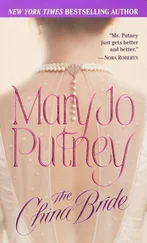The school’s board of management will send a car to collect her just before eight o’clock. She stands at the front window and surveys the area below. Every night a fishing boat or two traverses the bay and their lights bob and dip on the water, winking up at her on the hill.
She opens the door and stands in the garden. The smell of July is everywhere — heather, honeysuckle, the scent of yellow furze and the faint promise of night-scented stock. There is a spot down the lane where, year after year, she awaits the appearance of primroses, their pale yellow a salve to the eyes after the bleak winter — always the bleakest of winters here. They spring out of this unlovely ditch and though she knows it is absurd to imagine that a small wild flower might yield up some message, their appearance after such a long time bestows certainty, confirms the existence of real and material things, their constancy, their permanence.
Her eye is caught by something bright on the grass. It is a child’s pink hairband, made of elasticated cotton, with a sequined butterfly at the centre. Its presence here is a mystery and she is suddenly thrown by it. She glances around. We are always being watched, the nuns said, by God or the angels or the dead. She raises her head. The small uninhabited island far out in the bay reclines like a giant on his back. Down below on the main road the school is part hidden by the hedgerow. Her eyes glide to a snug two-storey house a little further on. Once it was the first place her eyes sought when she opened the front door each morning. The first chimney she fixed upon as she walked down the hill to the school, waiting for the trail of grey smoke to rise into the sky, and know he was up. They were up. I would have knocked down that outhouse at the back, she thinks, if I’d been him, I’d have knocked it down and got a clear view out to sea.
She switches on the immersion water heater and rearranges the box of face powder, lipstick and perfume bottle on the dressing table. She removes her glasses and her shoes and eases herself down onto the pink eiderdown. Thoughts of the evening ahead unsettle her. Pupils, past and present, the local curate, the principal Con Gallagher, half the parish will be there. There will be a meal — a cold meat salad and desserts — prepared by the ladies of the parish, and then speeches and toasts and finally the presentation. She cannot stand to be looked at. She opens her eyes. This is my place, she thinks — this house, these rooms, contain me. She switches on the lamp by her side. It casts an orange glow on the walls. This had been her parents’ room. She remembers evenings here, looking out the front window. She dates the start of her own conscious life to the moment when she was two, and, bathed in light, she saw for the first time the top of her head in the mirror of the wardrobe door. She tries to reimagine herself at two. She brings her hand to her face and presses on her eyelids, to stem the flow of tears.
There had been a child. His hair had grown from fair to dark in one year. His ears were small and, she thought then, a little too close to his head. He had learnt to walk at ten months. She’d come home from school through the city streets on winter evenings and the upstairs flat would be warm, with condensation running down the window panes, and Kathleen would hand him to her and his weight would sate the ache in her arms and there was nothing sweeter, ever, in her life after that. When he was born she thought of him as having come out of another realm, uncontaminated, pristine, whole. His eyes turned to the window, like a plant straining towards the light, and she wanted to say no, no, stay pure . She whispered — she dared not say it aloud— my son . She whispered his own name and his father’s name into his ear. She almost forgot to eat. At night he slept beside her in the narrow bed set against the wall. She wanted nothing to divide them. At times she wanted to put him back inside her.
On Saturdays she walked around the city, pushing him in his pram, fearful of being sighted by the nuns from her school. She went out early to the library and to bookshops and to the Botanic Gardens, and one Saturday morning in spring she took a bus out of Belfast to Strangford Lough. The bus driver helped her with the pram and she held him on her lap for the journey, like any other mother. They passed a fishing-tackle shop on Lower Donegall Street, a strange shop with a dark interior that she walked past every day on her way to school. The surname was written in sturdy red lettering above the door. Sweeney . The sight of this name, with the child sitting there on her lap, gave her a bearing. She bent her head close to the child’s and whispered the two syllables in his ear.
She was eighteen that summer and home from St Mary’s Training College in Belfast. Neighbours worked together saving hay and turf, bending and sweating and labouring from dawn to dusk, the women returning to the houses at noon to bring out sandwiches and bottles of sweet tea. She worked side by side with Manus. With Hughie Sweeney and his younger brothers, too. Years later she came upon a print in a bookshop — it was a photograph of a young man and woman on a Paris street. The young man looked just like Hughie, shy and clumsy and lost. His tall, thin rangy body in baggy trousers and a pullover, his head lowered a little, and hands like Hughie’s — big rural hands that he never knew what to do with. Hughie’s voice was thick with the local accent and he had a habit of nodding a little too fervently as if he was still greeting the person long after meeting them. When she was alone with him the nod got worse. They started to fall in together at the work and in the comings and goings to the fields. He had a black and white sheepdog, Percy, who followed him everywhere and he told her of a neighbour who had never named his dog but whistled and called out Dog and the dog came, and they both laughed at his story.
That day in late August when the work was all done, they had gone up the mountain so that Hughie could fish from a small lake high up. He carried a homemade fishing rod and a jar of bait, and she, in her sleeveless dress, tucked a book from her college course under her arm. They walked along a stony lane that wound its way around the back of the mountain. Halfway up Percy stopped and looked back, uncertain, and Hughie told him to go on home. Wild goats perched high up on tiny rocky outcrops and she, afraid of heights, had to look away, for fear she might cause them to topple off. The path narrowed and the overgrown briars caught on her dress and he had to disentangle her. She felt her face flare red when he leaned behind her. At the top the mountain opened out to surprise them — a secret plateau of luxurious grass and heather and bog cotton, high and concealed and embedded into the summit. He told her the name of the place, Áit na hAltaire , the altar place, named after the secret Masses celebrated there in Penal times.
She would have preferred not to read, to talk instead. She grew hot and tense and could not follow her novel. She brushed off a fly and she saw he was looking at her and her heart rose. She turned back to her book, to its story set in nineteenth-century London society, and on this mountain on this bright day the characters and their lives felt dull and stifling and irritating. She left the book aside and got up and walked off to find a view of the sea, but there was none. The collar of her dress was stiff and hot against her neck. She lifted her hair to cool off. She listened out for birdsong. It is too far up, she thought, birds don’t fly this high. She would have liked to open her arms out wide and run in circles under the sun and call out the name that was coursing through her head all summer. Instead she pulled wisps of bog cotton and rolled them between her fingers and thought of slaves toiling in American cotton fields in the searing sun all day long.
Читать дальше












